We have compiled an evidence based comprehensive list of foods and supplements for fertility to help you get pregnant faster and reduce the risk of miscarriage.
As a fellow infertility warrior, I can attest to how easy it is to get suckered into doing ANYTHING suggested for trying to conceive. Even if it’s seemingly complete BS, if the internet tells us to try it, we will. There are lots of mommy blogs out there recommending what to eat, what not to eat, supplements and the like, but aside from your daily prenatal multivitamin, are there any legitimate recommendations for foods and supplements for fertility to take to increase your chances of getting pregnant?

Let’s take a look at some of the research on fertility supplements and foods for helping you get pregnant and stay pregnant.
Common Supplements for Fertility when Trying to Conceive
It’s very common for women and men who are struggling to get pregnant to be recommended a variety of vitamins and other supplements to help them conceive. But what does the research say about these common additions to the diet?
Omega-3 fatty acids
Early research suggests that a diet high in omega-3’s may help improve reproductive success by improving oocyte quality in women. In this study, participants consumed a diet where 2% of overall calories were omega-3’s. Oocytes are cells in the ovaries that play a major role in embryo development and since low oocyte quality might be a possible cause of fertility issues, it is thought that boosting up their quality may help you conceive.
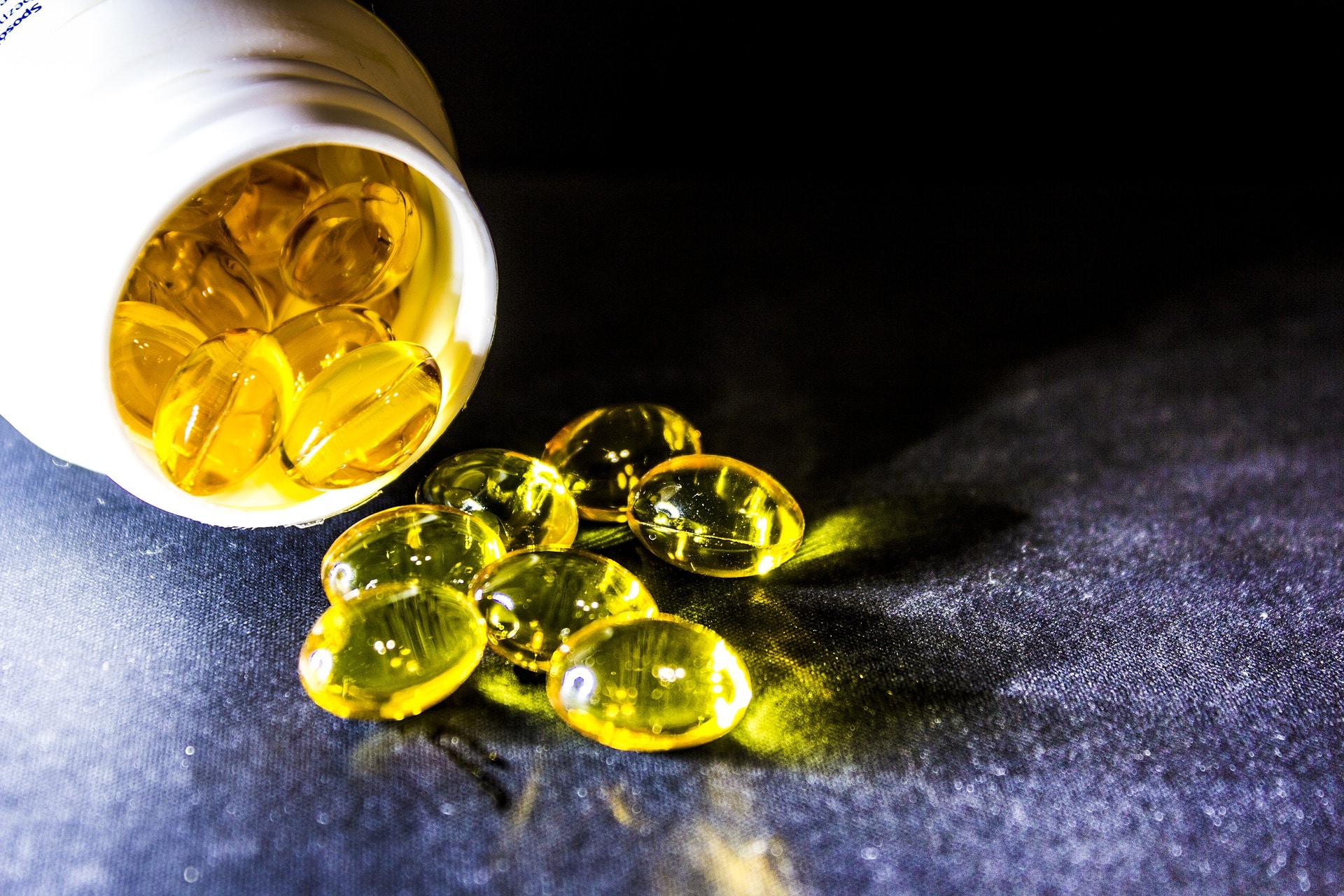
Folic acid
Studies have shown that folic acid plays a significant role in oocyte quality, implantation, fetal growth, and placentation. One particular study demonstrated that women who received folic acid supplementation had better quality oocytes than women who did not receive supplementation. Ample research has also demonstrated that folic acid is necessary for proper embryo development and growth since it plays a role in the prevention of neural tube defects . In male fertility, one research study suggested that folic acid supplementation resulted in about a 16% decrease in sperm damage while another study supplemented a sample size of 65 men with 15 mg of folic acid and the results showed that they had a significant increase in sperm count and motility. Folate naturally occurs in nature as vitamin B9, while folinic acid (folic acid) is the synthetic version which your body takes longer to convert. Methylated folate is another form of folate that is naturally occurring, but it has some advantages over folic acid because it is absorbed in the body faster. It is currently recommended to take around 600mg of folic acid when trying to conceive and throughout pregnancy.
Zinc
Research on women in relation to zinc in fertility is unfortunately limited. Research in mice has suggested that zinc deficiency may be linked with improper embryo development due to a defect in placenta development. Some research has also shown that a deficiency in zinc in female rabbits may be linked with a decreased interest in male counterparts, resulting in decreased ovulation. The endometrium was also found to be very inactive in these rabbits, making it difficult to conceive. In another study, a zinc deficiency in monkeys was related to impaired reproduction, however some monkeys with the deficiency could still conceive. Overall, zinc supplementation could possibly help with infertility in women, but more actual human research should be done in women to make more clear recommendations. In contrast, research on the effects of zinc in male fertility found that men with idiopathic sub-fertility had lower zinc concentrations in seminal plasma compared to those who didn’t. It was also found that men with higher sperm counts had higher seminal plasma zinc concentrations. Lastly, research has found that zinc supplementation may be linked with less sperm damage in males.
Vitamin D
Evidence suggests that vitamin D may be directly related to anti-Müllerian hormone (AMH) production, as research suggests that women with higher concentrations of vitamin D tend to have higher ovarian reserves and oocyte quality. As mentioned earlier, oocytes are the cells in the ovaries responsible for embryo development, so with good quality oocytes and ovarian reserves we may see a boost in overall fertility. Another study found that vitamin D may have a protective role against endometriosis by increasing endometrial thickness inside the endometrium.
Vitamin E
As a powerful antioxidant, vitamin E can help reduce oxidative stress, which in turn can possibly reduce the risk of common reproductive disorders such as endometriosis, infertility, PCOS, etc. Vitamin E may also help increase endometrial thickness by increasing the blood flow to the endometrium in women, and supplementation has been linked to reduced sperm damage in men.
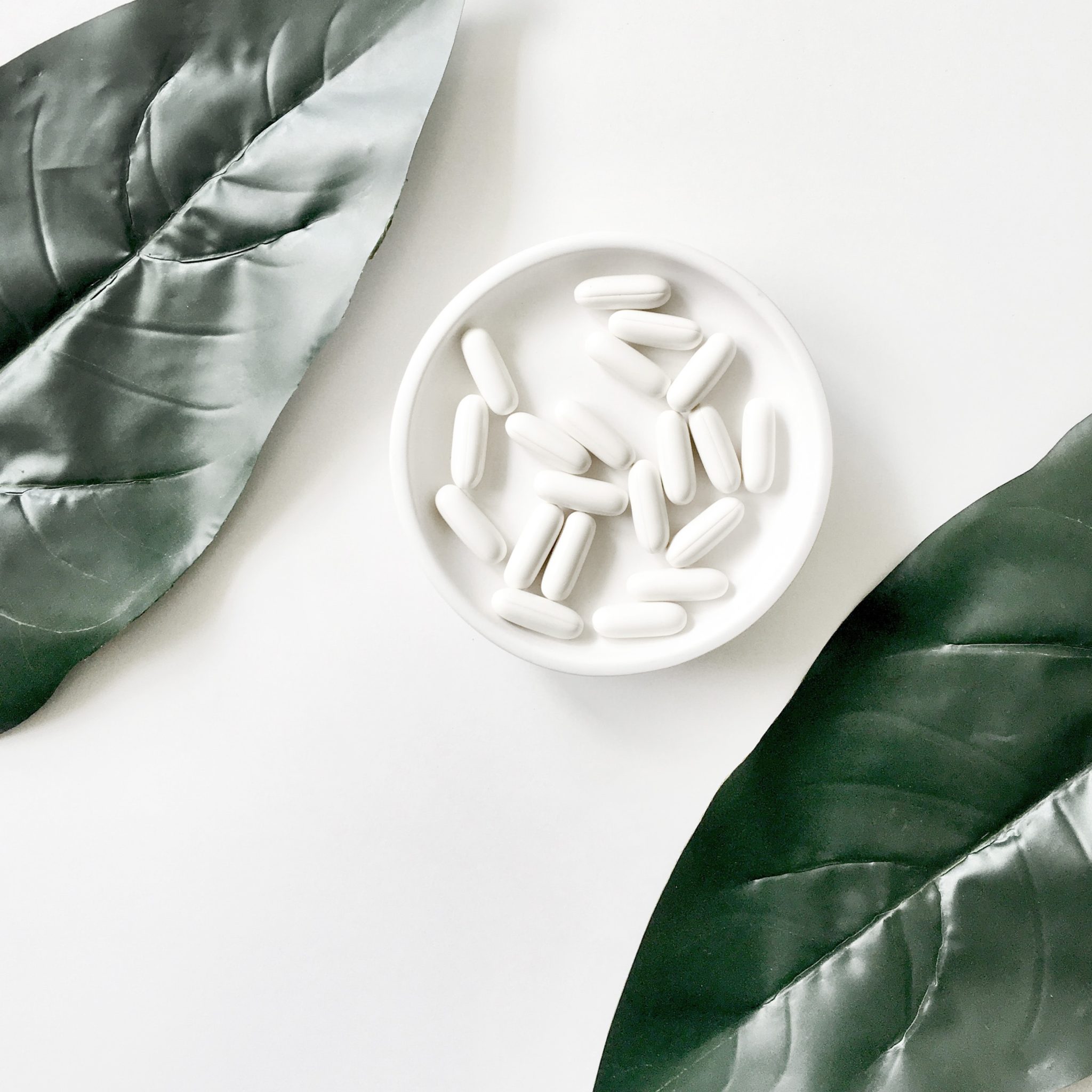
Coenzyme Q10
Coenzyme Q10 is important for providing energy to cells, and as we age, our levels of coenzyme Q10 diminish making it more difficult for our bodies to do normal processes, such as fertilization. Research suggests that coenzyme Q10 supplementation may be linked to improved ovarian response in women with low ovarian reserves. One study found that coenzyme Q10 may help with PCOS symptoms by balancing insulin levels, as well as sex hormones. Another study found that the health of a woman’s eggs increased as coenzyme Q10 supplementation was introduced at 600mg/day. In male fertility, research has found that coenzyme Q10 was linked with higher sperm motility and count.
Choline
Choline is a vitamin that is essential for proper development throughout one’s lifetime, especially cognitive growth. Evidence suggests that human fetuses receive a large amount of choline during pregnancy, hence why the needs of a mother-to-be are very high, around 450-550mg/day. Unfortunately, research shows that most women do not get adequate amounts of choline during pregnancy. Although research linking choline with fertility is limited, it is possible that choline is needed for a healthy pregnancy and therefore needed to become pregnant.
L-arginine
Research on L-arginine and its impacts on fertility in women is very limited. Of the research found, early pilot studies suggested that supplementation of L-arginine (16g/day) improved ovarian response, endometrium quality, and associated pregnancy rates. It was also found (here, here) that supplementation of L-arginine increased sperm motility and sperm count in men.
Bromelain
While it has been long speculated that bromelain (found in pineapple) has anti-inflammatory properties, which may be used for blood thinning to supply more blood to the uterus to prepare the uterus for implantation and pregnancy, the evidence in humans is lacking.
Selenium
Research on selenium and female infertility is very scarce. One study found that selenium deficiencies were associated with improper fetus development, pregnancy complications, and miscarriages. In men, research has found that supplementation may improve conception and motility.
Iron
It is without a doubt that iron is needed for proper fetal development during pregnancy, but what about while trying to get pregnant? During pregnancy, it is recommended by the National Institutes of Health (NIH) that women aim to get about 27mg/day of iron. It is possible that an iron deficiency when trying to conceive can put one at a greater risk of infertility due to a lack of ovulation and menstruation. However, we don’t have specific evidence to back that up. One long term study found that 438 women with infertility decreased their risk of ovulatory infertility when they supplemented with iron over an 8 year period, but we need more research to confirm.
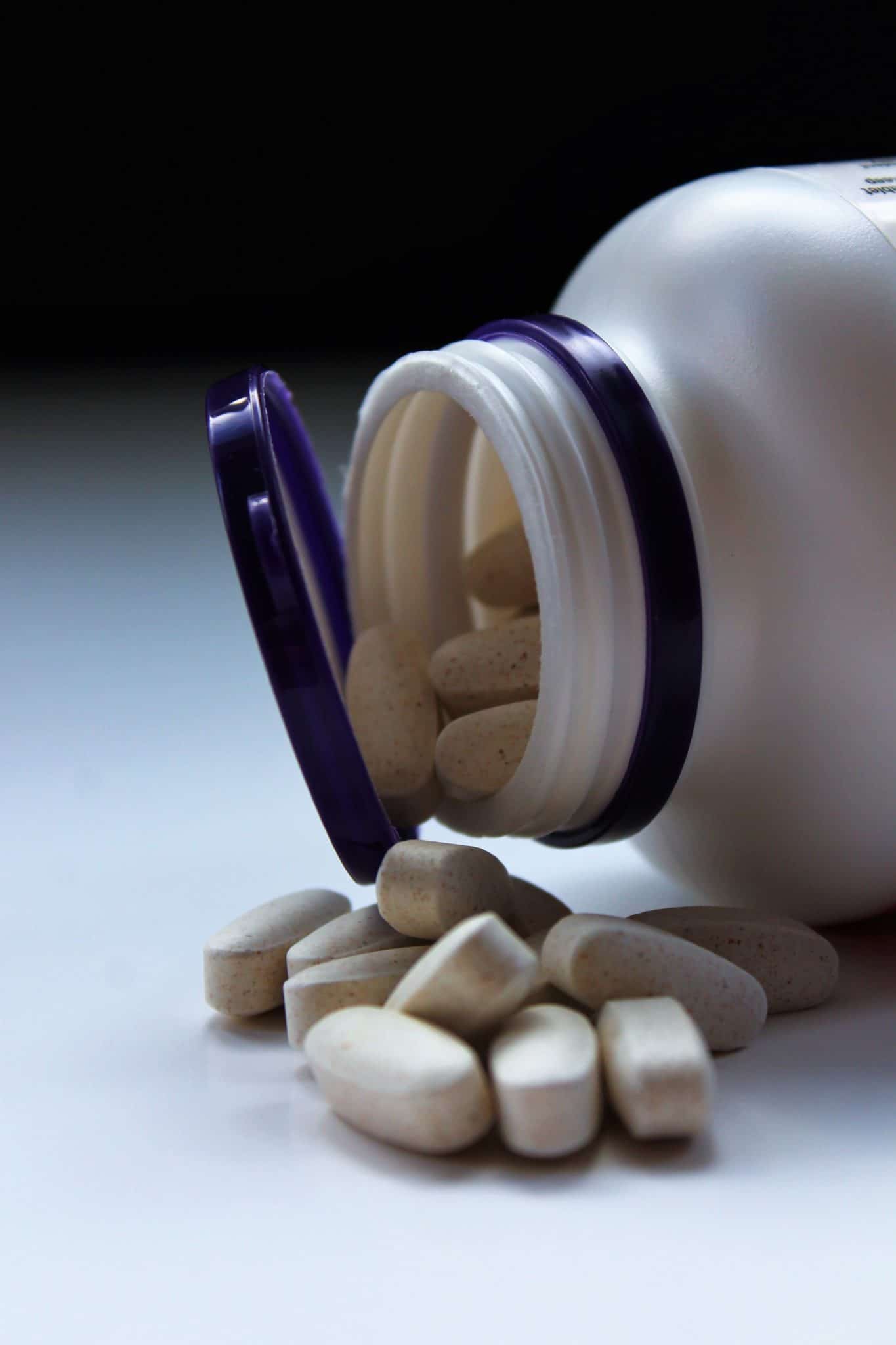
Acetyl L-carnitine (ALC)
Research has shown that Acetyl L-carnitine (ALC) has powerful antioxidant properties to reduce oxidative stress. Since oxidative stress has been linked to female infertility, it is believed that consuming adequate antioxidants may help reduce the risk of oxidative stress and damage. There is also some evidence that ALC may be linked with improved oocyte quality and maturation. However, more research should be conducted to confirm this.
L-citrulline
Evidence suggests that L-citrulline may be linked with increased sperm count and motility in men. However, research on L-citrulline in women is extremely scarce.
Maca
Although there is very little quality research, a 2016 review found that maca powder was associated with improved semen quality. However, most of the studies either had a small sample size, not enough trials, or there was a high risk of bias. Further research should definitely be conducted before making any conclusions.
Bee pollen and propolis
One animal study conducted in 2011 found that the consumption of bee pollen in male subjects was linked to improved sperm quality. Again, there is not adequate human data to draw any conclusions. In women with endometriosis, one study found that consumption of bee propolis (500mg, twice a day) was linked to a 40% increase in the chances of becoming pregnant. Again, more research is required.
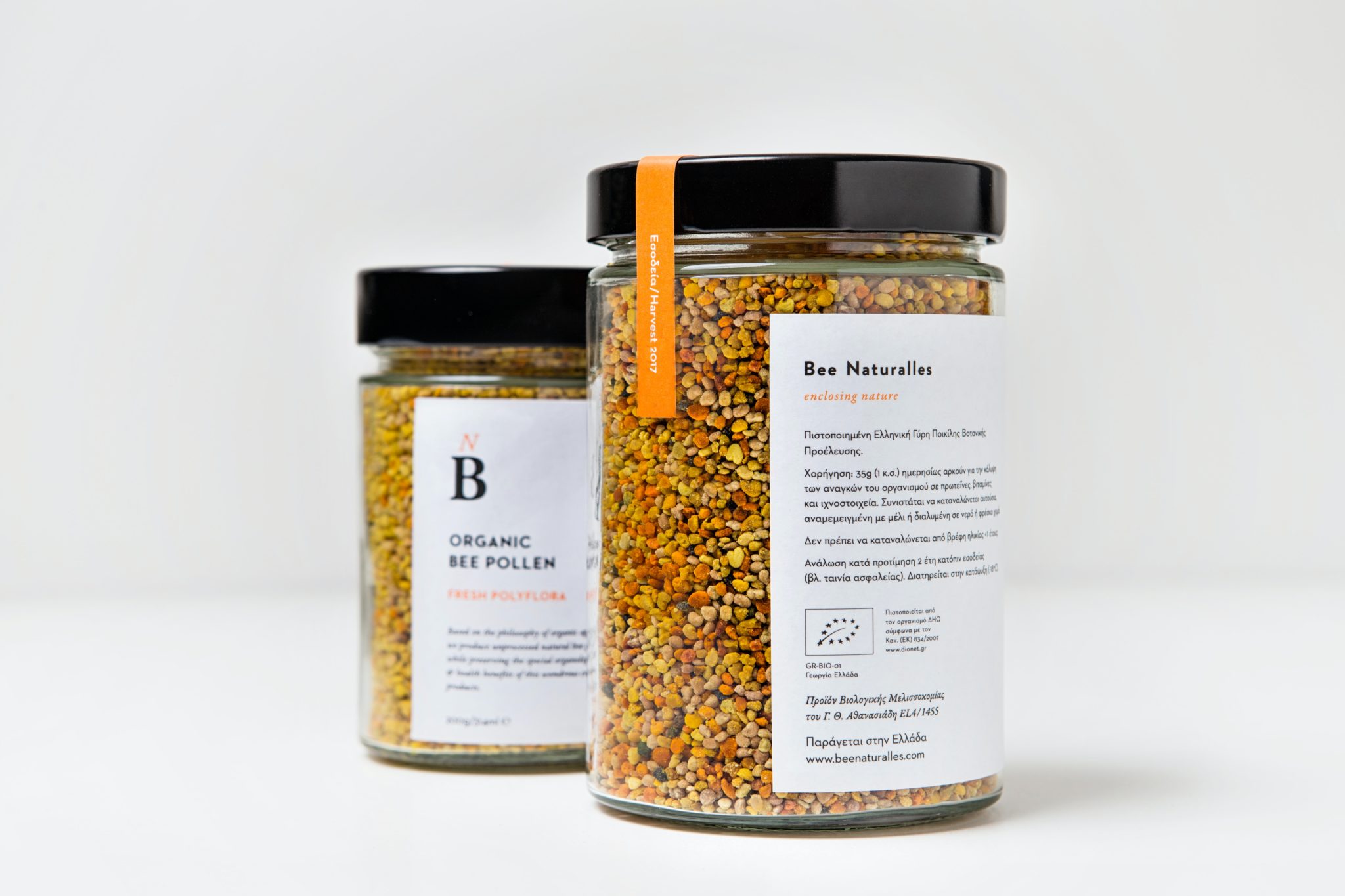
Royal Jelly
Animal research shown that royal jelly, produced by bees, may increase ovarian hormones through its alleged estrogenic effects, and promote hormonal balance which can help with infertility issues. Obviously human trials are needed to confirm.
N-acetyl cysteine (NAC)
In men with varicocele (aka enlargement of the veins in the scrotum), it was shown that treatment with 600mg/day of NAC after surgery improved sperm quality and resulted in a 22% increase in pregnancy rates. Of course, we don’t know if that’s the supplement or surgery doing the trick. In women with PCOS, research suggests that supplementation of 50mg of NAC twice daily may help induce ovulation.
Inositol
In a research study with over 900 women being treated for anovulation, supplementation of inositol improved pregnancy rates by 6.13% by increasing embryo quality and number of oocytes retrieved. As discussed in our PCOS post, we also know that inositol is a powerful adjunct for women as one study suggests it may help restore ovulation and improve your chances of pregnancy.
B-vitamins
In addition to folic acid, research has found that 27% of men who consumed 1000 mcg of B12 per day showed an increase in sperm count. Another study found that 50% of men who received 1500 mcg/day of B12 saw increased sperm motility and sperm count.
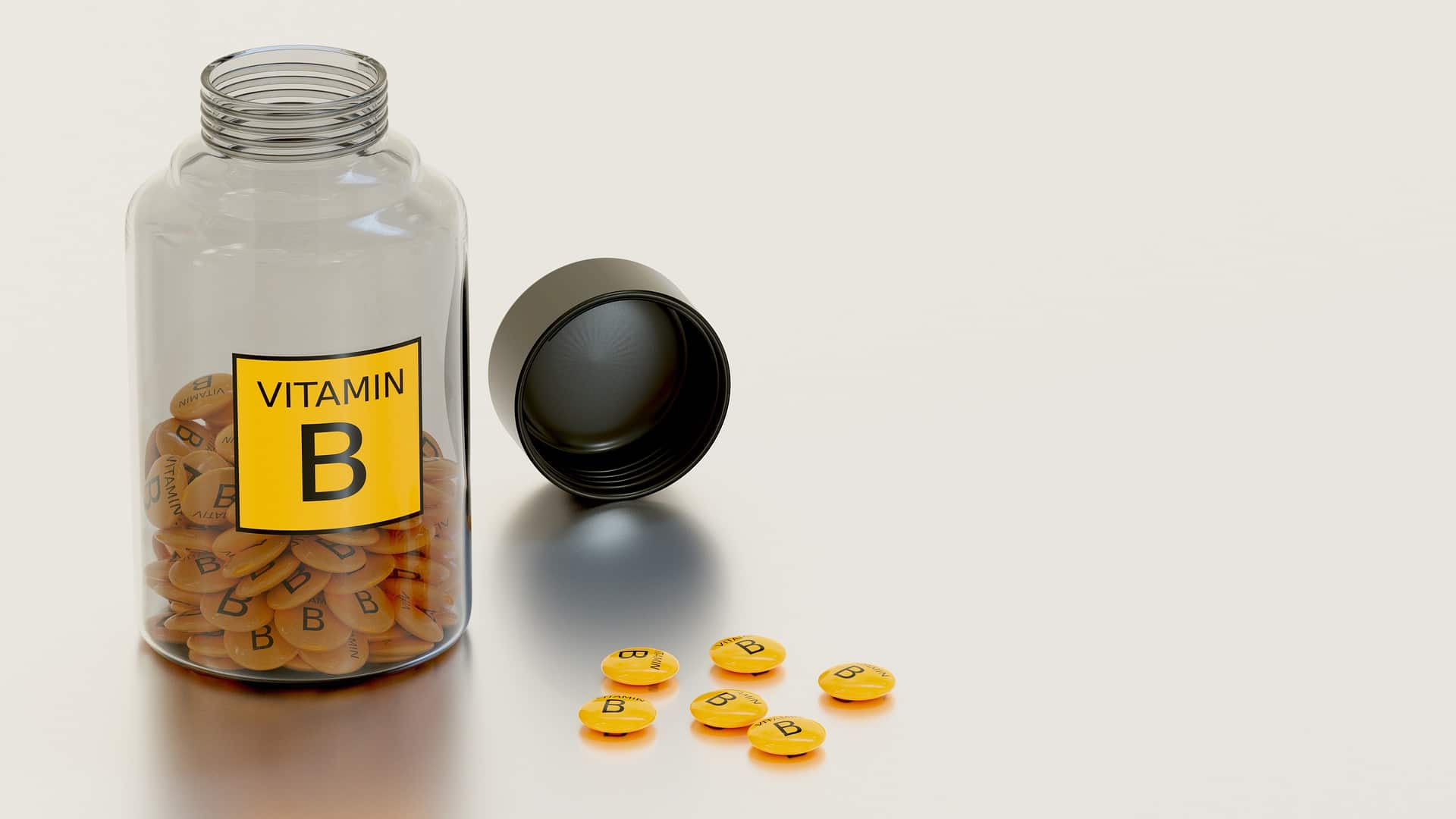
Melatonin
Melatonin has also been shown to play a role in fertility and may potentially improve IVF outcomes. A 2014 review found that melatonin acts as an antioxidant and improves the quality of the eggs by reducing the level of an oxidizing agent called 8-OHdg. By protecting the egg from free radical damage, melatonin may help women improve fertility by creating healthier and more fertile eggs. Research also suggests that melatonin may play a role in fetal development and assist with IVF treatments. One 2014 systematic review found that melatonin supplementation during IVF may increase pregnancy rate by as much as 21%. BONUS! It helps you sleep (see lifestyle factors below!).
Pyrroloquinoline quinone (PQQ)
PQQ is a powerful antioxidant that is often recommended to improve fertility. While research is limited, the few studies on PQQ and fertility were performed on mice. Despite showing positive results on reproductive performance and growth in mice, more human research is needed in this area to fully understand the role of PQQ and fertility.
Acai Berry Powder
An ongoing study conducted by CCRM fertility has shown promising results on the effectiveness of acai berry powder and pregnancy outcomes for women undergoing IVF. Despite the small sample size, 81% of study participants achieved ongoing clinical pregnancies. Though the study is still ongoing and conclusions still need to be drawn from total outcomes, it is speculated that the high level of antioxidants in the acai berry powder may be a powerful supplement to support ovarian function.
Top Fertility Foods and Diet Tips
We just talked about all the supplements for fertility, but there are also foods and dietary patterns that may help support conception and a healthy pregnancy.
Plant Based Protein
Considering the popularity of plant-based diets in general, there’s been a lot of talk of the impact of vegan protein versus animal protein on fertility. Research has shown that swapping out animal protein for plant-based protein may decreases one’s risk of ovulatory infertility. Another study found that consuming more animal protein resulted in a 32% increase in the risk of infertility. This can possibly be attributed to the high amounts of saturated fat, antibiotics, and hormonal residues found in animal protein. In contrast, research has shown that non-heme iron (the type we find in plant based proteins) may help decrease the risk of anovulatory infertility. This doesn’t mean you need to go completely plant based or vegan, but I do think we can all benefit from incorporating more plant-based protein into our week.
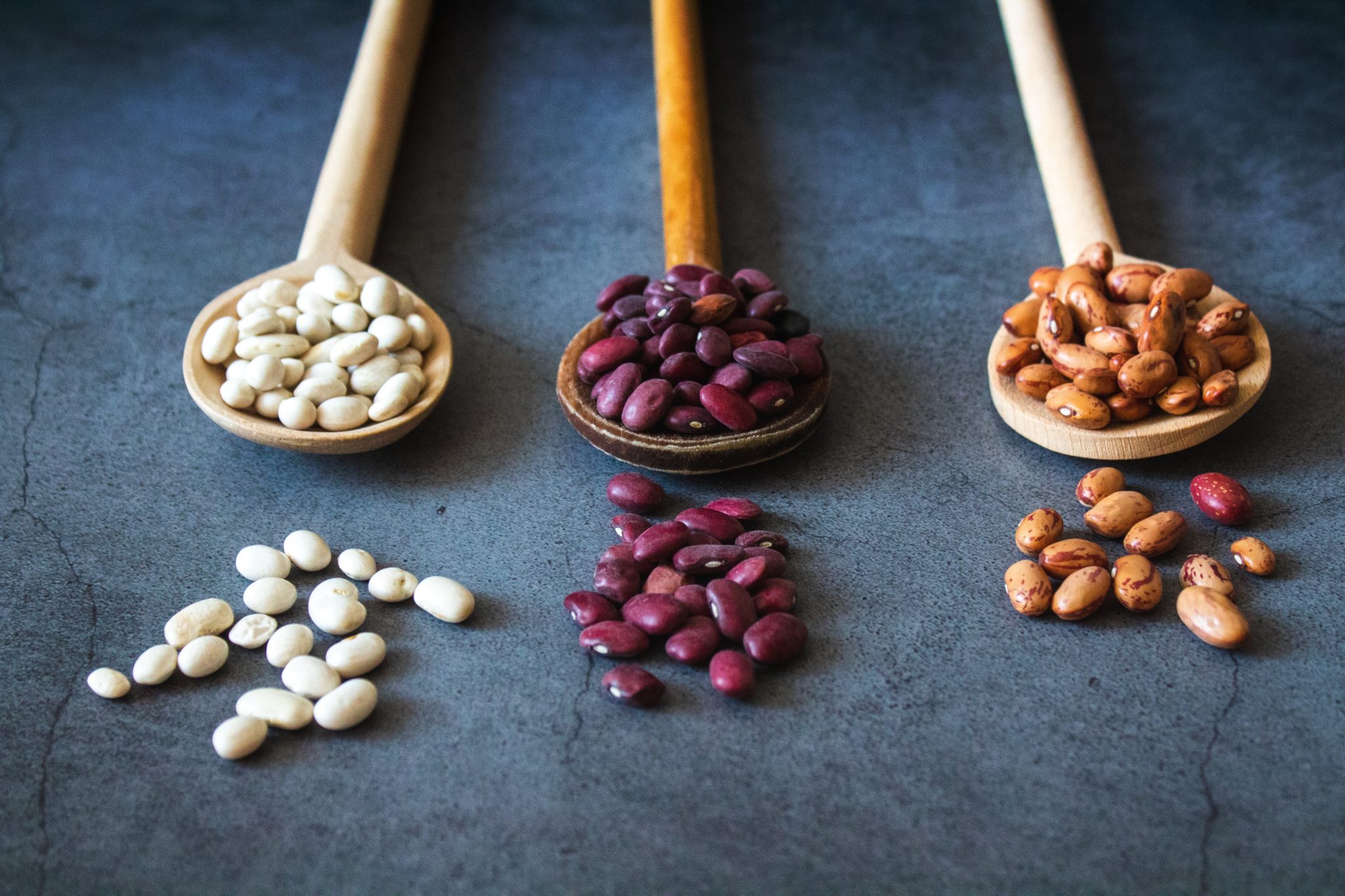
Full Fat Dairy
While we just talked about eating more plant based, let’s look at the research on high fat versus low fat dairy. Research (here, here) suggests that there is a positive association between low fat dairy and risk of anovulatory infertility, while there is an inverse relationship between high fat dairy and risk of anovulatory infertility. Higher fat dairy products tend to have higher estrogen concentrations, and estrogens are known to decrease IGF-I levels which may explain the decreased risk of anovulatory infertility.
Walnuts
Walnuts are known to be rich in antioxidants which fight the free radicals in our bodies that cause damage to our cells and energy stores. Research suggests that consuming 75g of walnuts per day may be associated with increased sperm motility, count, and morphology in men. It was also found that the increase in sperm quality was correlated with increased serum levels of alpha linolenic acid (ALA) and omega-6 fatty acids. This is because these fatty acids are critical in maintaining many cellular functions not only in fertility, but many other metabolic processes in the body.
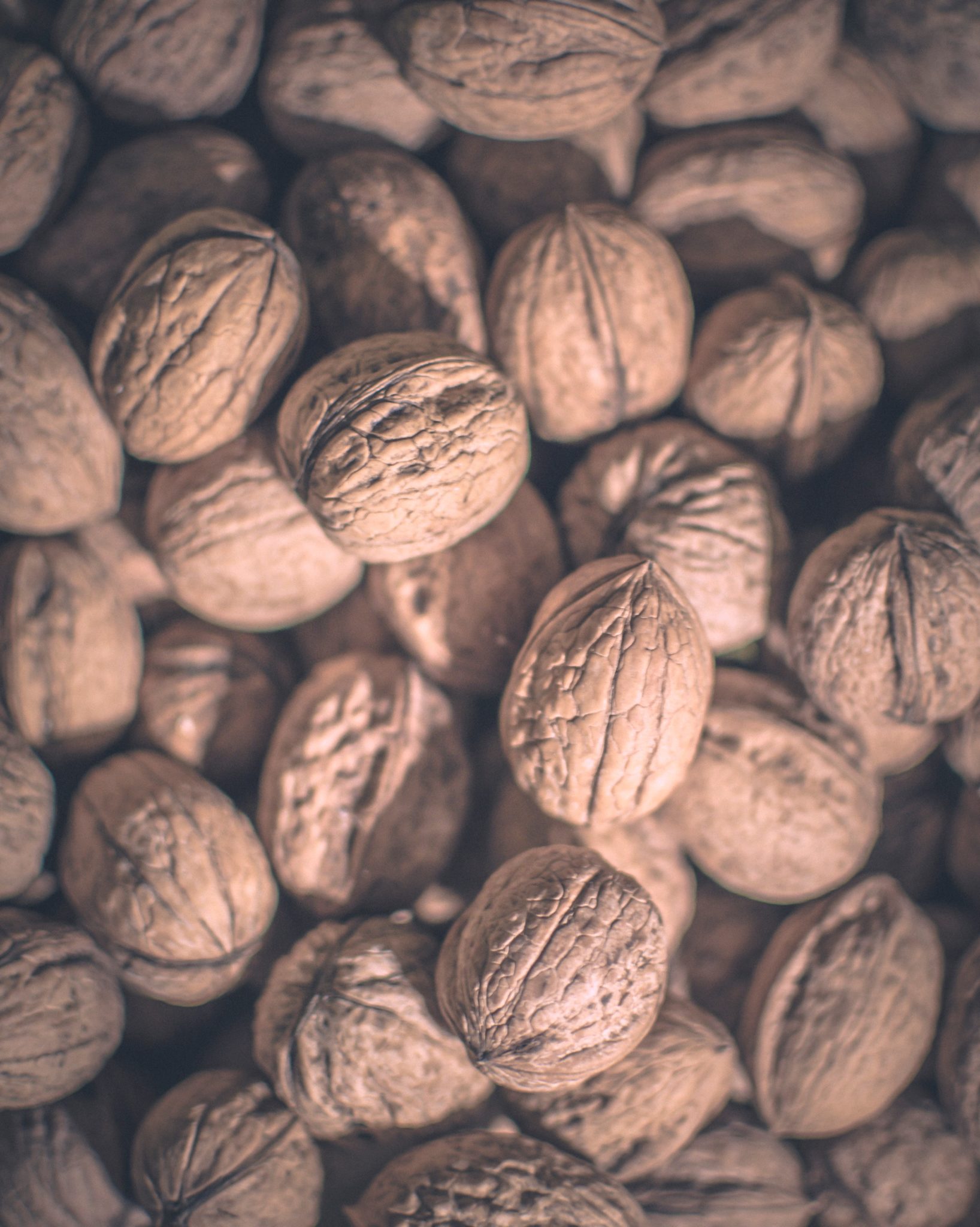
Breakfast
Another topic that has been in discussion recently in relation to fertility is whether you should eat the majority of your energy intake earlier in the day or later in the day. Research on 60 lean women with PCOS found that the women who ate a larger breakfast compared to lunch and dinner had an increased ovulation rate than the women who ate larger meals later in the day. The research also demonstrated that the women who ate a larger breakfast had decreased insulin levels (by 54%) and testosterone levels (by 50%). So, basically what this means is that eating breakfast may help with the extremely high testosterone levels in women with PCOS. In addition, the women in this study experienced improved insulin sensitivity and high insulin resistance has been associated with a higher risk of anovulation and ultimately, infertility.
Fibre Rich Carbs
One study from 2007 found that increased intake of cereal fibre (10g/day) was associated with 44% decrease in the risk of anovulatory infertility in women over the age of 32. However, no significant association was found in younger women. However, another study found that even a 5g/day increase in dietary fibre was associated with a 78% increase in the risk of anovulation. It’s hard to say what the consensus is here, but it doesn’t hurt to take this information into account when discussing fertility. More research should definitely be conducted on this topic.
It was also found that in patients with PCOS, a low glycemic index diet had a higher percentage (24.6% versus 7%) of ovulatory cycles compared to patients with a normal glycemic index diet.
Foods to Limit when Trying to Conceive
Trans Fats
Fats have been in discussion amongst the nutrition community for years, and while there are still a lot of disagreement about specific types of fats and their impact on health, I think we can all agree that trans fats aren’t so great. Trans fats come in two forms, natural and artificial. There have been a few studies (here, here) showing that moderate consumption of natural sources of trans fat, such as the ones found in meat and dairy products, aren’t likely harmful to one’s health. However, artificially made trans-fats, for example the ones found in fried fast foods and vegetable shortening, have been linked to an increased risk of infertility. One study found that even a 2% increase in the consumption of trans fat was associated with a 94% increase in the risk of ovulatory infertility. The study did not state whether or not the trans-fat studied was natural or artificially produced, but regardless, it may be best to try to avoid trans-fats while trying to get pregnant. On the other hand, a study conducted found that increased monounsaturated fat (MUFA) consumption was associated with higher odds of birth, while polyunsaturated fat (PUFA) was inversely correlated with embryo quality. Meaning the more PUFA consumed, the higher the count of poor-quality embryos.
High Glycemic Index Carbohydrates
Although not much research has been done on the correlation between carbohydrates and fertility, one study on 438 women found a positive correlation between high glycemic index (GI) carbohydrate intake and risk of ovulatory infertility, while low GI carbs reduced this risk. So, as high GI carb intake increased, the risk for ovulatory infertility increased as well. Though there is little research out there, this is definitely something to take into account when attempting to increase fertility. There has also been research done suggesting that a low carb diet may be linked with decreased PCOS symptoms, which is the diagnosis of a lot of women struggling with infertility. One small study found that women with PCOS who reduced their carbohydrate intake to 20g/day for 24 weeks experienced on average a 12% decrease in body weight, 22% decrease in testosterone, 36% decrease in FSH, and a 54% decrease in fasting insulin. Another study found that a low GI diet improved menstrual irregularity in over 80% of women with PCOS. One 2010 study also found that a low GI diet may improve menstrual cyclicity in 95% of women with PCOS.

Caffeine
Consuming caffeine has been discussed t a lot in the pregnancy community. One large study found that women who consume over 500mg of caffeine a day took over 9 months longer to conceive than women who consumed less than 500mg/day. Another study found that increases in caffeine intake by 100mg/day was associated with increased risk of miscarriage. A third study found that women who consumed over 75mg all the way to upwards of 900mg/day had an increased risk of a spontaneous miscarriage compared to women who consume less than 75mg/day. More research on the actual mechanism by which this association occurs should be done to understand the reasoning behind these findings. Official guidelines recommend no more than 200mg of caffeine/day which is equivalent to about one 12 oz coffee.
Alcohol

Some research has found that low to moderate consumption of alcohol (about 1 standard drink/day for women, 2 for men) did not play a role in trying to conceive. However, other research has found that high alcohol consumption (140g/week, about 10 standard drinks) increased the risk of infertility in women, while moderate consumption (1 standard drink/day for women) had no correlation with fertility. Although there may be some varying findings on this association, these findings should be at least taken into consideration when deciding to consume alcohol, and if so, how much is safe. This is because alcohol is pro-inflammatory which can possibly increase the inflammation in relation to the endometrium. Inflammation is one of the major issues with endometriosis, so limiting alcohol intake might be something to consider when discussing fertility.
Other Lifestyle Considerations for Increasing Fertility

Exercise
It’s no doubt that regular exercise is good for an individual’s health regardless of whether or not you’re trying to conceive. In terms of the role of exercise in fertility, one large study found that any type of physical activity was associated with an increase in fertility among obese women, while moderate physical activity resulted in a small increase in overall fertility, regardless of BMI. This can possibly be explained through another study that found that the risk of ovulatory infertility increased as BMI increased in women. Also, it was suggested that physical activity may improve ovarian function by reducing insulin resistance. In another study, 60 of the 67 women resumed ovulation and 52 of them achieved pregnancy following a healthy lifestyle program that included physical activity. In the comparison group, none of these results were found. On the other hand, it has been shown (here, here) that strenuous exercise can result in hypothalamic dysfunction which in turn can lead to menstrual cycle irregularities and suppression of GnRH (responsible for the release of follicle stimulating hormone) which can then cause fertility issues such as anovulation. Moderation is definitely key so choose an activity that you enjoy doing and listen to your body.
Stress Management
Stress is without a doubt something we all deal with on a daily basis, but how does stress effect fertility? Multiple studies (here, here, here) suggest that infertility is significantly associated with stress. One study found that stress significantly reduced the probability of achieving pregnancy in 274 women. Researchers explained that as alpha-amylase (can be used to measure stress response) concentrations rose, the probability of conceiving decreased. Another study found that higher levels of stress was associated with irregular menstrual cycles and anovulation. If stress plays a factor in fertility, learning how to manage stress may play a huge role in your fertility journey. Some possible ways to manage stress include exercising, attending therapy, or finding a distracting hobby to take your mind off of it.

Getting Enough Sleep
Sleep deprivation in women may impact the release of luteinizing hormone (LH) which is what triggers ovulation and regulates your cycle. This may explain why one analysis found that female shift workers (those who work at night or rotated shifts) were at higher risk of miscarriage and other menstrual cycle disturbances. Again, we definitely need more research, but we know how important sleep is for hormone regulation and stress management, so this really would make sense.
Bottom Line on Foods and Supplements for Fertility
It’s safe to say that women and men who are struggling with infertility are often desperate to do whatever they can to improve their chances. While the research in this area is limited and it’s unlikely that for most women and men that adding a little bee pollen will make or break their chances, in a lot of cases, the recommended foods and supplements are low risk and healthy, in general. Again, it’s important to remember that you are not at fault for your infertility if you do not make all of these dietary changes – lots of people get pregnant despite doing exactly the opposite of these suggestions!
But as someone who struggled myself with infertility, I understand that sometimes you just want to feel like you did everything you could, and making small changes to your diet may give you some sense of control. Ultimately, if it brings you peace of mind, it may be worth exploring some of these options, but if it makes you more anxious and stressed to think about all of these things, it definitely will not help the cause. Either way, it’s always best to speak to your health care provider about the best supplements and diet changes for you.
Baby dust to you and yours! xoxox
More Blog Posts You May Like
Did you enjoy this post about foods and supplements for fertility? Looking for other fertility blog posts? Check out some of my favs below!
- BIRTH CONTROL INFERTILITY | RISKS AND EFFECTS OF BIRTH CONTROL ON FUTURE FERTILITY
- SEED CYCLING FOR FERTILITY | DOES IT ACTUALLY WORK?
- DOES ALCOHOL & CAFFEINE AFFECT FERTILITY OR CAUSE MISCARRIAGE?
So tell me, have you tried any of these foods or supplements for fertility? Are there any others that seemed to help you conceive? I would love to hear about your experience below!
Contribution by: Medline Hermann

Abbey Sharp is a Registered Dietitian (RD), regulated by the Ontario College of Dietitians. She is a mom, YouTuber, Blogger, award winning cookbook author, media coach specializing in food and nutrition influencers, and a frequent contributor to national publications like Healthline and on national broadcast TV shows.
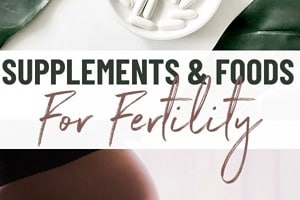
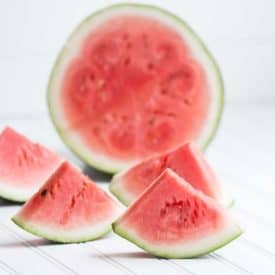
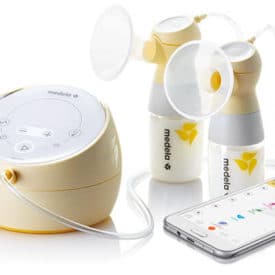
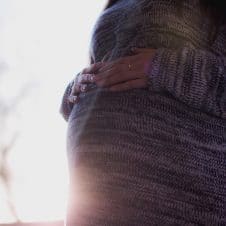

DurgaDurga says
Hi, I came across your blog article. No fluff, just helpful info. Keep up the good work.
Fertility Treatments
santhathi says
That’s great information! You have put lots of efforts into preparing this wonderful material! It helps lots of people! Useful information. I am very happy to read this. Thanks for giving us this useful information.
Allie says
Hi abbey! Do you have a particular coq10 supplement you recc’d? I have tried looking some up but there are so many! Thank you!
Abbey Sharp says
There are so many, it depends where you live so I suggest looking up a few brands you have access to on labdoor.com. I generally like NFH brand though!https://nfh.ca/product/coq10-sap/